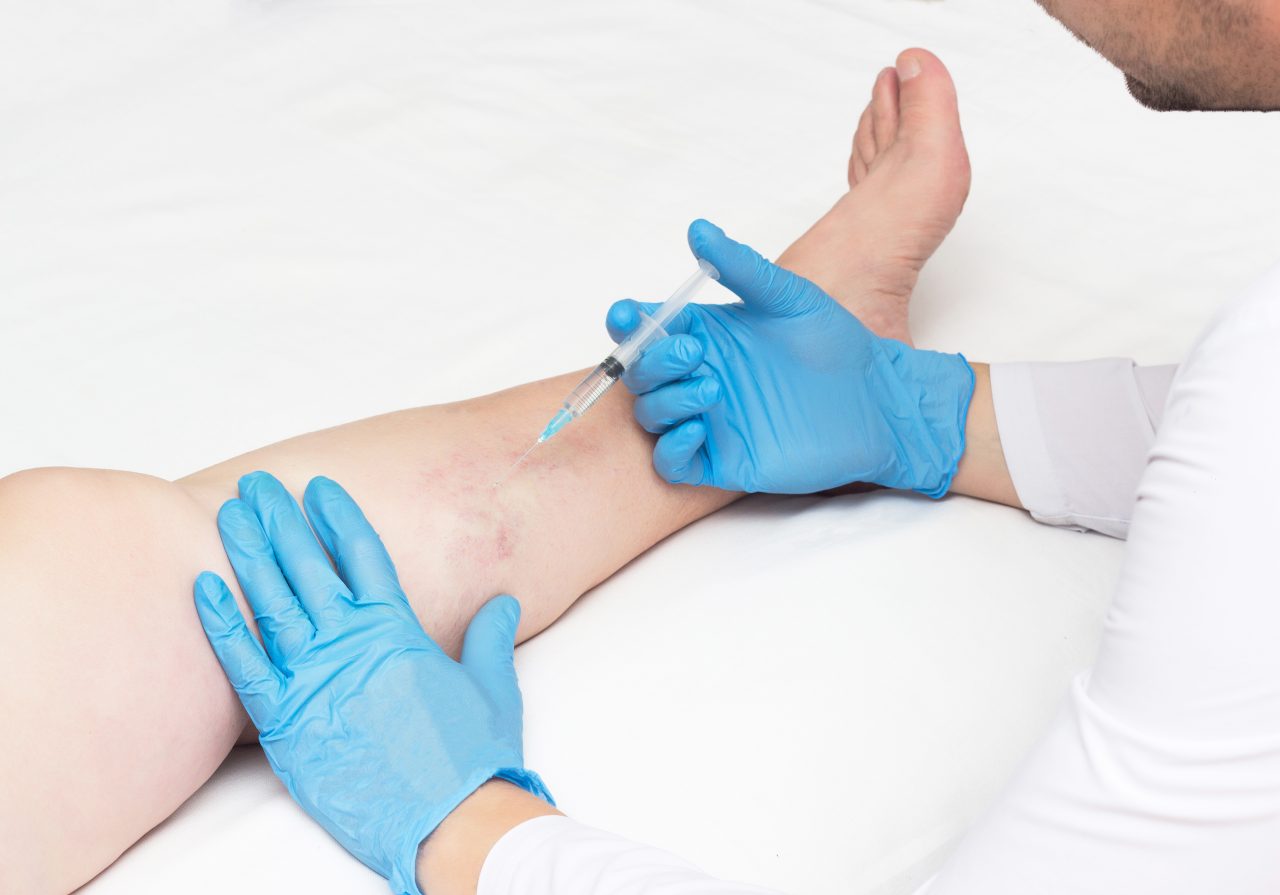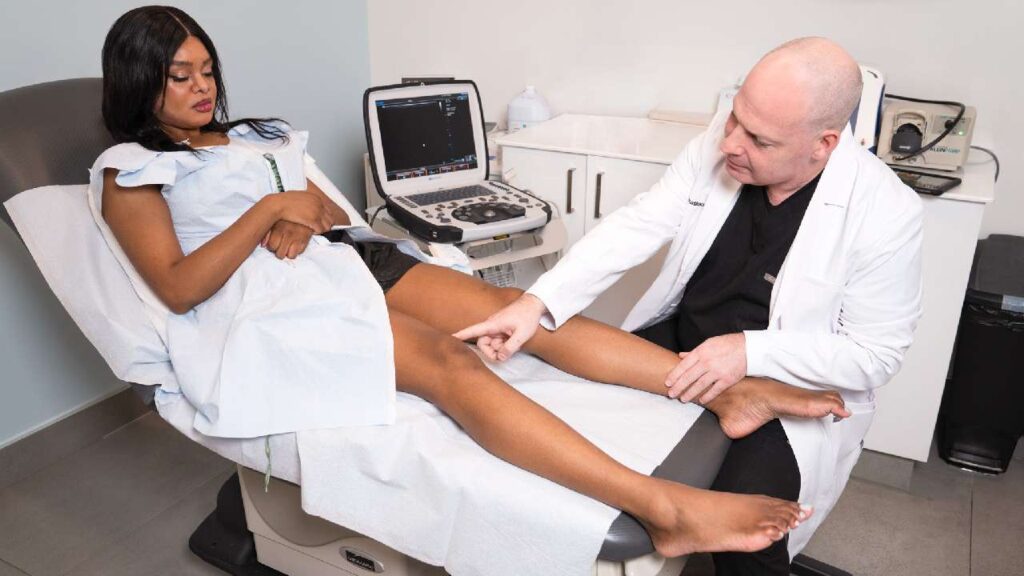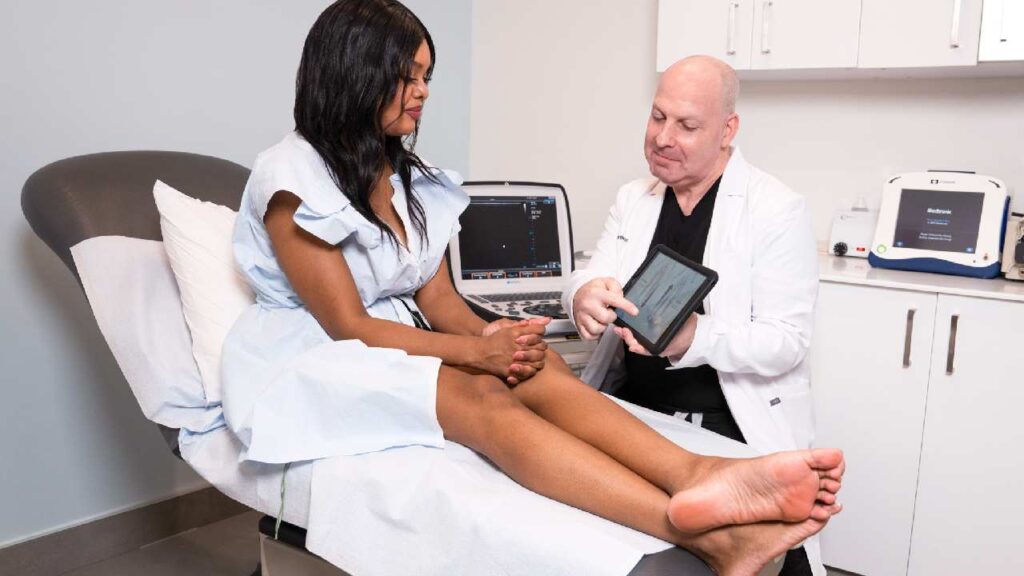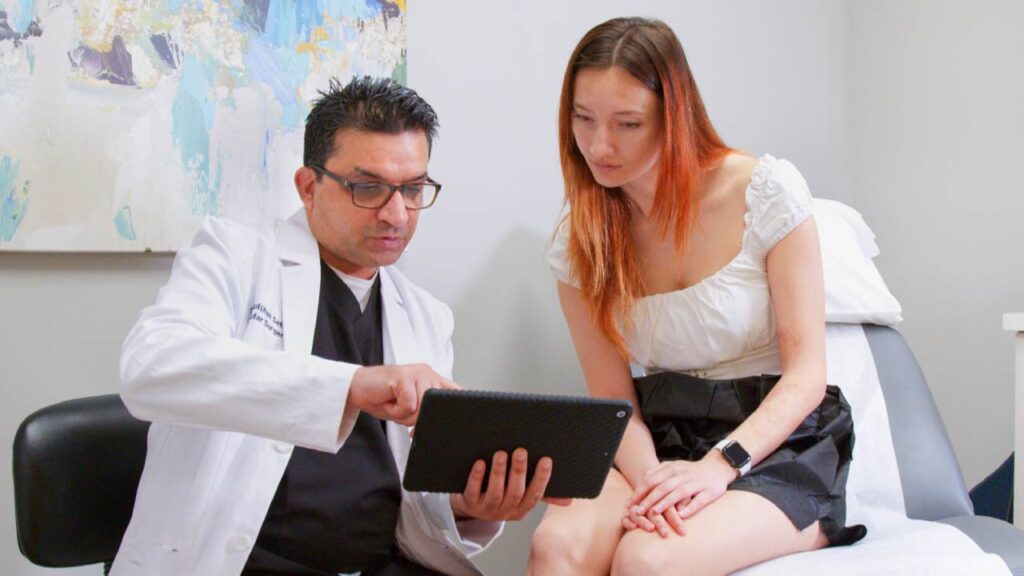Is a Vein Specialist Called a Phlebologist?
There are several vein clinics in Manhattan. How do you differentiate between vein specialists? The first step is understanding that the term “specialist” isn’t regulated like the term “doctor” is. Some vein specialists actually specialized in vein medicine or vasculature during medical training. These doctors are board certified by the American Board of Venous and Lymphatic Medicine or the American Board of Medical Specialties.
ABMS board certified doctors might study vascular surgery, while many ABVLM board certified doctors, including phlebologists, typically study minimally invasive vein treatments. Schedule a consultation with a board certified NY vein doctor for superior vein care. Other “specialists” aren’t vein doctors, but dermatologists, estheticians or cosmetic surgeons who didn’t study veins, and only know how to perform one or two surface treatments.
The problem with seeking treatment from someone other than a vein doctor is that most vein damage isn’t just superficial. Varicose and spider veins in the legs often stem from broken valves in deeper blood vessels, and these require a vein doctor for successful treatment.

What Is a Vascular Doctor Called If They’re a Surgeon?
Vascular doctors who perform surgery on veins are called vascular surgeons. However, vein surgery has been largely replaced by minimally invasive procedures. Vascular surgeons now work primarily on peripheral artery disease, ruptured arteries, and only the most complicated varicose veins. Most patients are advised to use newer, less invasive treatments, which are sometimes referred to as vein “removal,” but they are non-surgical in nature.
For instance, radiofrequency ablation, sclerotherapy, endovenous laser ablation, vein adhesives, and mechanochemical ablation all “remove” the vein by treating it inside the body and causing it to disappear. These procedures are gentler, safer, faster, and more appropriate for most patients with spider and varicose veins.
Rather than searching for a “vascular surgeon near me,” look for a vein clinic with minimally invasive doctors, like phlebologists. If the vein clinic has vascular surgeons too, that’s a sign that they’re a comprehensive vein clinic, since some patients do require surgery. But it is not the first line of treatment for most people.
How Do I Interpret What a Vein Specialist Doctor Is Called?
The best way to interpret what the vein specialist doctor is called is to investigate their credentials. Make sure they are an MD or DO who is licensed to practice medicine.
Next, ask if they are board certified by either the American Board of Venous and Lymphatic Medicine or the American Board of Medical Specialties. If so, what are they certified in?
Board certification is not required to treat veins, so look for this indication of expertise. If the doctor is board certified in a complementary field like internal medicine, anesthesia, or pain medicine, ask whether they also completed vein medicine training. Our vein doctors hold multiple board certifications for the most comprehensive vein care. They all passed rigorous examinations of their vein knowledge and abilities.
Which New York Doctors Are the True Vein Experts?
What are vein doctors called when they’re truly vein experts? Both phlebologists and vascular surgeons are trained to treat veins. Depending on your vein problem, one might be better than the other. If you have highly tortuous varicose veins, particularly if you have blood clots, you might need a vascular surgeon. Minimally invasive vein procedures inject the vein with sclerosants, adhesives, or thermal energy. If you have a blood clot, it might be safer to remove the vein than to inject it with liquid, foam, or glue.
But for the vast majority of patients, surgery is unnecessary and potentially ineffective. Vein stripping involves general or spinal anesthesia and multiple deep incisions, so there is a higher risk of complications. Treating veins inside the body causes no scarring, bleeding, or recovery time, and it’s faster and more affordable. So, the best vein expert for you is a minimally invasive vein doctor who can identify any blood clots or serious complications. If you don’t have these issues, you’ll be treated with less invasive vein procedures.
Who Is the Doctor That Specializes in Veins and Arteries?
Certain vascular doctors, like vascular surgeons, treat both veins and arteries. But most doctors cater to one or the other. High blood pressure in the arteries and high blood pressure in the veins require different treatments. If you have an artery disease like hypertension, your internal medicine doctor might suffice, unless you have serious complications that require surgery. If you have vein issues, like varicose veins, spider veins, and venous insufficiency, you should see a phlebologist first, not a vascular surgeon.
Who Is the Top Vein Doctor Near Me for Spider Veins?
While spider veins are often presumed to be cosmetic issues, they frequently stem from vein disease– particularly when they develop in the legs. Leg veins pump blood against gravity to the heart. They rely on vein valves to close once blood passes through to keep it flowing upward. When valves fail, blood flows in reverse and accumulates beneath the valve.
This elevates pressure in the vein and causes new spider veins to branch out from the overburdened vein. Treating that deeper malfunction is key to preventing a proliferation of spider veins. Cosmetic vein clinics don’t treat valve failure or vein disease, so choose our renowned board certified vein doctors who will determine the cause of your spider veins.
Who Is the Best Doctor to Remove Varicose Veins in NYC?
If you have varicose veins, it’s even more likely that you have malfunction in deeper veins. While they can occur anywhere, varicosities often develop in the lower extremities because of the gravitational burden on valves in leg veins. Just like spider veins, you must treat the source of varicose veins too, to prevent a recurrence of varicose vein disease. Venous insufficiency causes a host of unpleasant symptoms, in addition to spider and varicose veins. Read about these symptoms below and the doctor who can relieve them.
Who Is the Best Vein Doctor Around Me for Vein Disease?
As mentioned, both spider and varicose veins often signify vein disease. Chronic Venous Insufficiency is a common yet underdiagnosed condition with several frustrating symptoms. Patients might experience any or all of these: leg swelling, cramping, aching, heaviness, itching, restlessness, discoloration, venous ulcers, or venous stasis dermatitis.
Some patients develop a blood clot, deep vein thrombosis, or bleeding that’s hard to control when the skin is bumped. Choose a board certified doctor trained in minimally invasive vein procedures, since these are the keys to eliminating vein disease. Our Harvard-trained vein doctors, Dr. Michael Nguyen, Dr. Juan Montoya, and Dr. Sareh Rejaee are remarkably qualified to treat vein disease.
Which Leg and Vein Doctor Near Me Is Accepting New Patients?
If your veins are bothering you, and particularly if you have debilitating symptoms, it’s important to be seen quickly. Our team of vein experts simplifies this by offering several vein clinics in New York. We have a location in Midtown, FiDi, Jericho, West, Islip, and Hampton Bays, so you can always be seen promptly, even if you’re a new patient.
All of our vein doctors are board certified and exceptional. They consult each other on patients as needed, so you receive the expertise of several vein specialists during your diagnosis and treatment. Schedule a consultation today to put all of your vein issues behind you!





